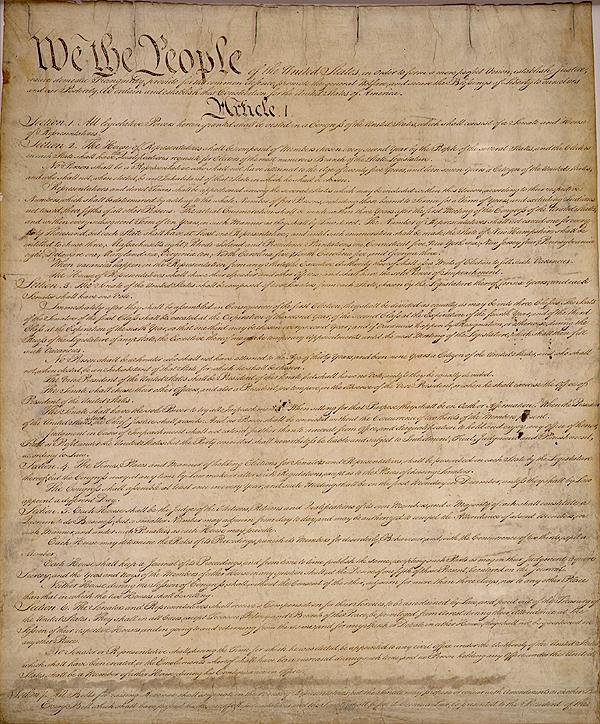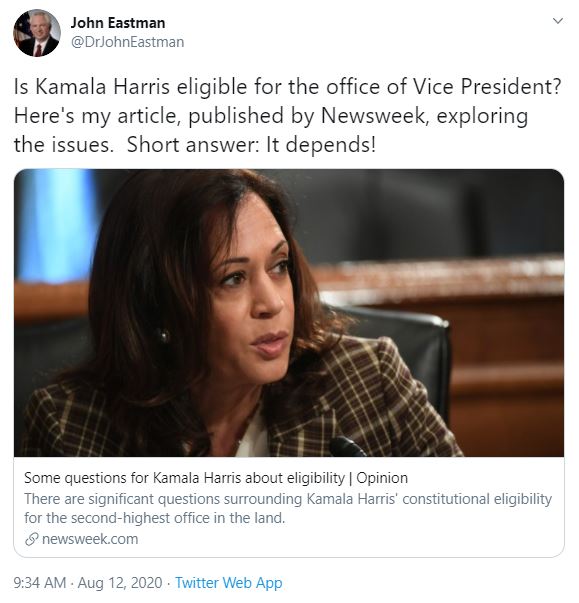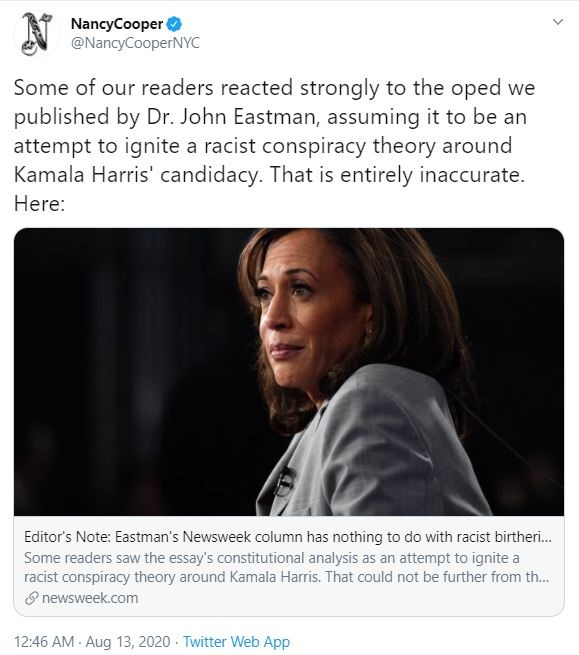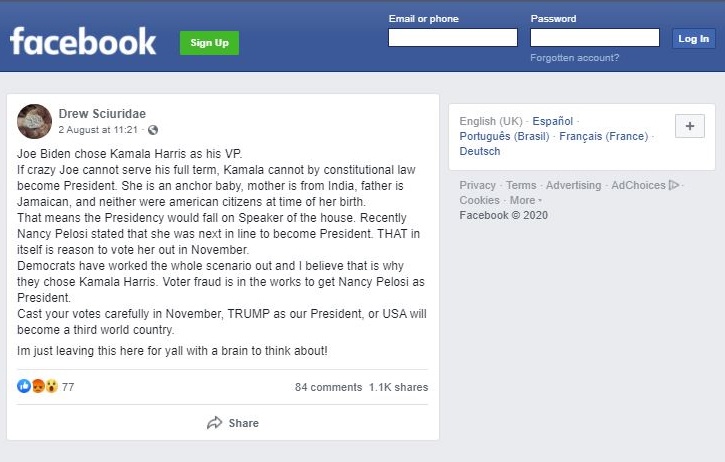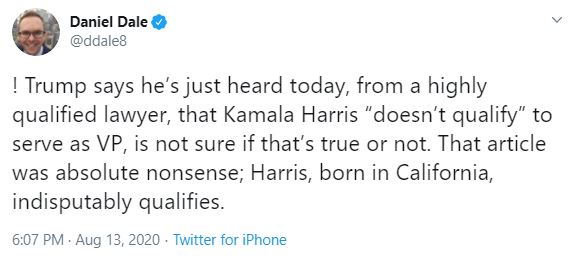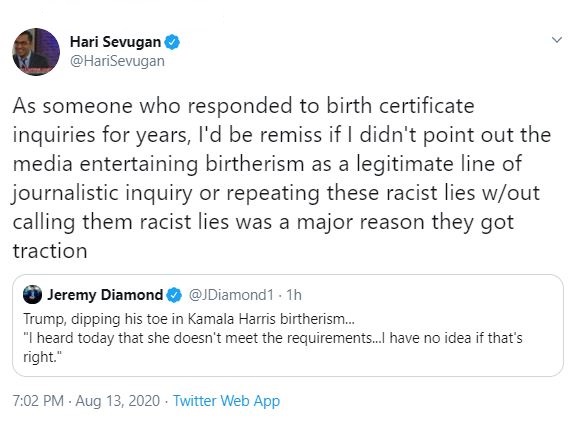Index to posts in this series
Eric Foner opens the chapter on the 14th Amendment in The Second Foundation by providing context for its adoption. The 39th Session of Congress began in December 1865. President Andrew Johnson had set up governments in those states under rules that enabled them to elect a large number of former high-ranking Confederate political and military leaders. The rebel states had enacted the Black Codes, and allowed horrifying attacks on Freedmen to go unpunished. The Republicans and the people who elected them were outraged, and refused to seat their senators and representatives. That gave the Republicans a 2/3 majority, enough to override vetos.
The Republicans were divided into two groups, the Radicals and the moderates. The Radicals wanted full political and civil rights for the Freedmen and for all men. The moderates initially thought they could work with Johnson, but that failed because of Johnson’s deep racism which he put into practice throughout his Presidency. The moderates were worried about giving suffrage to the freedmen, in part because voters in the North were opposed; in part because they thought the freedmen were not prepared to participate in politics; and perhaps because at least some of them beld racist views about the mental capacity of the Freedmen. They were also concerned about granting rights that suggested social equality.
The two groups were united in trying to increase their presence in the slave states, and in insuring full political rights short of suffrage. They all agreed further amendments to the Constitution were needed. This fragile unity was the basis for the adoption of the 14th Amendment.
Congress established the Joint Committee on Reconstruction to consider some 70 amendments. The 15 members of the Committee and the entire Congress debated the amendments for several months. These debates not only covered the precise wording of the amendment but also the nature of freedom, what it means to be a citizen of the United States, which powers should be exercised by the federal snd state governments, and the nature of proper governance.
The first bill that emerged from the debates was an effort to deal with the electoral problem created by the 13th Amendment. The end of slavery meant that the ⅗ compromise in the Constitution was no longer effective, so that all Black people in the South were counted towards representatives and electoral college votes. That gave the White Supremacists too much power. The obvious solution was to require the states to enfranchise Black voters. An alternative solution determined representation by the number of voters. If the slave states disenfranchised Black voters they would lose the edge the ⅗ clause gave them, reducing the number of their Representatives by as much as ⅓.
The compromise was to count inhabitants but exclude people disqualified from voting by race or color. This proposal got the necessary ⅔ vote in the House, but stalled in the Senate in large part because of fear that the slave states would disqualify Black voters with non-racial rules, like literacy tests and property ownership requirements.
Gradually things slowed to a halt as the Republicans found it difficult to bridge the gaps between the moderates and the Radicals. Congress began tp focus on the Civil Rights Act of 1866.
This law established birthright citizenship and provided that all citizens of the US would enjoy basic economic rights and natural rights to the same extent as white citizens. That would mean an end to the Black Codes. The law was not intended to deal with political rights, which include suffrage, the right to sue and be sued, to serve on juries, and to attend public schools, among others. It was also unclear whether the law applied to private conspiracies to deprive Black citizens of their rights by violence or intimidation, or by conspiring to reduce employment opportunities or otherwise. This law allowed private citizens to enforce it in federal court. Andrew Johnson vetoed the bill, but Congress overrode that veto.
It was the Supreme Court that ultimately protected the racists in the Civil Rights Cases (1883).
During and after passage of the Civil Rights law, debate continued over amendments. The breakthrough was the decision to compile the proposed amendments into a single amendment containing those most likely to garner enough support to pass. There was a lot of wrangling over language but eventually the text was ratified. The text of the amendment is set out below.
Foner discusses the contents of the 14th Amendment at length, pointing out what they did and didn’t do, and focusing on the intent of the framers. It was enacted in June 1866 and sent to the states for ratification. Tennessee was the only rebel state to ratify the amendment. The others, under governments appointed by Johnson and encouraged by him, refused. The Radical Republicans were infuriated, and so were many moderate Republicans. Foner explains the stated reasons:
If Radical Republicans saw the amendment as disappointingly weak, white southerners deemed it an unwarranted, indeed outrageous, interference in their states’ internal affairs. Southern objections focused both on practical political matters—loss of representation because of denying blacks the right to vote, the bar to officeholding by “the best portion of our citizens”—and on broader fears for the future of white supremacy. Opponents charged that Congress might well feel authorized to use the amendment to give “Negroes political and social equality with the whites.” To accept such a fate by agreeing to ratify, a southern newspaper wrote, would be a form of “self-degradation.”P. 88-9, fn omitted.
In the election of 1866 Johnson campaigned for opponents of the 14th Amendment. This breach of norms, coupled with the intransigence of the rebel states and their appalling treatment of the Freedmen changed the minds of the moderate Republicans. In the new session Congress threw out Johnson’s plan for reconstruction and enacted their own form of reconstruction, now called Radical Reconstruction.
The Reconstruction Act of 1867 placed the ex-Confederate states, other than Tennessee, under temporary military rule. It required that new governments be elected by black and white male voters (with the exception of Confederate leaders barred from officeholding by the Fourteenth Amendment). The southern states were obligated to adopt new constitutions incorporating the right to vote regardless of race. And they were required to ratify the Fourteenth Amendment. P 90, fn omitted.
The new governments rapidly complied, and the Amendment was ratified in July 1868.
Discussion
1. In the simplified histories we get in school, it all seems so neat: after the Union crushed the slaver rebellion, Congress passed the Reconstruction Amendments which gave the Freedmen the same rights as other citizens. It’s never that simple. This post is a tiny slice of that history, but it’s way more than I learned in school.
2. The debates over the 14th Amendment included complaints about federal interference in the internal affairs of states, an issue I raised here. It’s obvious that what they meant was the right of states to oppress people state legislators despised, as with Black Codes, exclusion from legal rights, exclusion from suffrage, and worse.
This kind of federalism, dual sovereignty, continues today. Florida passes laws blocking the teaching of the history of Black people and the existence of LGBT people. States deny women medical treatment and medicines they need. Alabama claims the right to gerrymander congressional districts to reduce the voices of Black voters.
Are there any non-oppressive hallowed state principles that today’s federal government could conceivably trample?
====================
Fourteenth Amendment
Section 1
All persons born or naturalized in the United States, and subject to the jurisdiction thereof, are citizens of the United States and of the State wherein they reside. No State shall make or enforce any law which shall abridge the privileges or immunities of citizens of the United States; nor shall any State deprive any person of life, liberty, or property, without due process of law; nor deny to any person within its jurisdiction the equal protection of the laws.
Section 2
Representatives shall be apportioned among the several States according to their respective numbers, counting the whole number of persons in each State, excluding Indians not taxed. But when the right to vote at any election for the choice of electors for President and Vice-President of the United States, Representatives in Congress, the Executive and Judicial officers of a State, or the members of the Legislature thereof, is denied to any of the male inhabitants of such State, being twenty-one years of age, and citizens of the United States, or in any way abridged, except for participation in rebellion, or other crime, the basis of representation therein shall be reduced in the proportion which the number of such male citizens shall bear to the whole number of male citizens twenty-one years of age in such State.
Section 3
No person shall be a Senator or Representative in Congress, or elector of President and Vice-President, or hold any office, civil or military, under the United States, or under any State, who, having previously taken an oath, as a member of Congress, or as an officer of the United States, or as a member of any State legislature, or as an executive or judicial officer of any State, to support the Constitution of the United States, shall have engaged in insurrection or rebellion against the same, or given aid or comfort to the enemies thereof. But Congress may by a vote of two-thirds of each House, remove such disability.
Section 4
The validity of the public debt of the United States, authorized by law, including debts incurred for payment of pensions and bounties for services in suppressing insurrection or rebellion, shall not be questioned. But neither the United States nor any State shall assume or pay any debt or obligation incurred in aid of insurrection or rebellion against the United States, or any claim for the loss or emancipation of any slave; but all such debts, obligations and claims shall be held illegal and void.
Section 5
The Congress shall have the power to enforce, by appropriate legislation, the provisions of this article.


